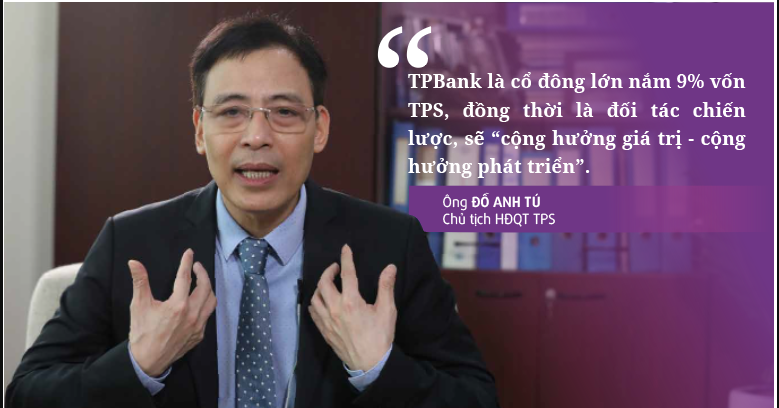While the amount of bonds issued to the public is still small and mainly comes from the banking group, individual investors' investment in corporate bonds will be limited, according to a new draft being submitted to the National Assembly for approval.
Corporate bond market: Narrow door for individual investors
While the amount of bonds issued to the public is still small and mainly comes from the banking group, individual investors' investment in corporate bonds will be limited, according to a new draft being submitted to the National Assembly for approval.
 |
| Illustration |
Playground for professional organizations
The latest draft of the Law amending and supplementing a number of articles of 7 laws in the field of finance and budget continues to define the subjects participating in purchasing, trading and transferring in the private corporate bond market as professional securities investors who are organizations. However, a small gap is opened for the group of professional securities investors who are individuals in the case of private bonds issued by credit institutions. In addition, according to the transitional conditions, corporate bonds that were privately issued before January 1, 2026 and have outstanding debt and private corporate bond offerings before January 1, 2026 that have submitted information disclosure content to the stock exchange but have not completed distribution will continue to be implemented according to the provisions of the Securities Law 2019.
Compared to the first versions of the Draft, the regulations on professional securities investors and subjects participating in the bond market have been significantly loosened. Previously, to become a professional securities investor, an individual needed to participate in securities investment for a minimum period of 2 years, have a minimum transaction frequency of 10 times per quarter in the last 4 quarters or hold a listed securities portfolio, registered for transactions with a minimum value of 32 billion VND...
However, the individual corporate bond market is still identified as the "playground" of professional organizations, except for the separate "niche" of bonds issued by banks.
It must also be said that there was a time in 2021 when individual investors were the largest group holding corporate bonds in this market, with a proportion of 41%. By June 2024, this proportion had decreased to 24%. With the market's purification, individual investors investing in the private bond market must consider more carefully the risks they may face.
In the public bond market, there are not many opportunities for individual investors. According to data compiled by the Vietnam Bond Market Association (VBMA) from HNX and SSC, from the beginning of the year to September 30, 2024, there were 268 private issuances worth VND250,396 billion and 15 public issuances worth VND27,054 billion since the beginning of the year. The value of bonds issued to the public accounted for less than 10%. Not to mention, Agribank's issuance alone raised VND10,000 billion, accounting for nearly 40% of the total value of bonds offered to the public.
Previously, in 2023, the situation was not much better, with the total value of corporate bond issuance recorded at VND 311,240 billion, with only 29 public issuances, mobilizing VND 37,071 billion (accounting for 11.9% of the total issuance value).
What is the solution?
Synthesizing comments from many businesses, associations, and experts on the Draft Law amending and supplementing a number of articles of 7 laws in the field of finance and budget, the Vietnam Federation of Commerce and Industry (VCCI) said that the regulation not allowing individual investors to invest in privately issued bonds of enterprises other than credit institutions will have a huge impact on the capital market.
In the current context, corporate bond investment organizations such as commercial banks, securities companies, insurance companies, investment funds, etc. are facing many restrictions on bond investment regulations. If these investors are restricted, it will be difficult for enterprises to issue more because there are not enough investors in the market to absorb the amount of bonds issued. In addition, considering the group of individual bonds with the purpose of debt restructuring, individual investors are almost the only investor group. In the future, enterprises may need to mobilize capital to restructure maturing debts or restructure debts with high capital mobilization costs.
“Therefore, businesses will be greatly affected in raising capital to restructure debt, which may strongly affect liquidity in the next 3-5 years,” VCCI's comments emphasized.
Meanwhile, the individual bond market has developed more stably after many measures such as operating a specialized bond information page of HNX, registering and centrally trading individual bonds at HNX... Therefore, VCCI recommends considering not adding the above regulation in this amendment, but only adding it after removing obstacles related to regulations on public bond offerings and reducing restrictions on investment activities of institutional investors.
According to Mr. Nguyen Ly Thanh Luong, Head of Analysis Group (Rating and Research Division, VIS Rating), the new regulation is set by the management agency to reduce excessive risks in private bond investment activities, by limiting private bond offerings to institutional investors only.
“Greater participation of institutional investors is very important for the sustainable development of the market. Compared to individual investors who tend to focus on short-term profit goals, institutional investors often have to consider investment risks more carefully, accept long-term investments and have better risk tolerance in the face of short-term fluctuations,” Mr. Luong advocated for deeper participation of professional organizations.
However, the fact that institutional investors such as insurance companies, pension funds and investment funds only hold 8% of the total outstanding corporate bonds as of the end of June 2024 is leaving a gap in the market. For example, the largest institutional investor in Vietnam is the Vietnam Social Security Fund, with assets under management reaching VND 1.2 quadrillion as of the end of December 2023, but has not yet invested in the corporate bond market. VIS Rating representative said that raising awareness of risks and increasing the presence of institutional investors are the keys to the new development stage.
Source: https://baodautu.vn/thi-truong-trai-phieu-doanh-nghiep-hep-cua-cho-nha-dau-tu-ca-nhan-d228435.html



![[Photo] Visiting Cu Chi Tunnels - a heroic underground feat](https://vstatic.vietnam.vn/vietnam/resource/IMAGE/2025/4/8/06cb489403514b878768dd7262daba0b)























































































Comment (0)